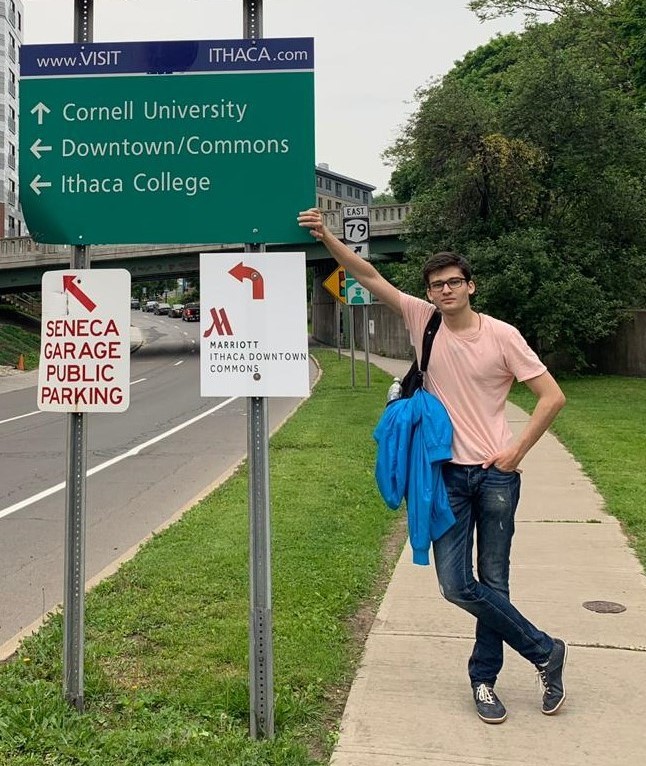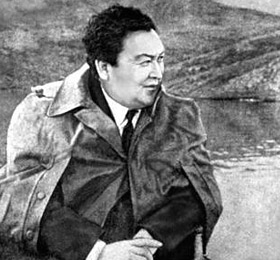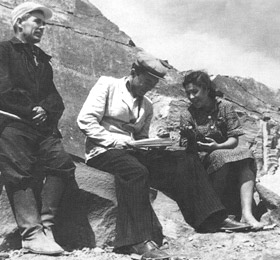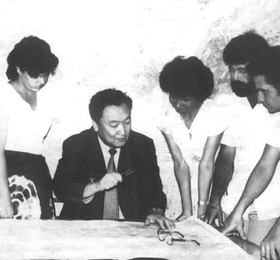Arsen Sheverdin
Specialty: physics. Internship: Cornell University, US.
 Arsen, 20 y.o., is interested in physics, but it is not just an abstract science for him. What he specifically likes about it is its overlap with applied mathematics and computer sciences. At school, he participated and won a number of Olympiads, including those at Republican scale. Last year he decided to try his luck: he took part in a serious competition of scientific internships at the Shakhmardan Yessenov Foundation. He was a success once again. Victory took him to the Ivy League University. What was his experience, and what is he up to now?
Arsen, 20 y.o., is interested in physics, but it is not just an abstract science for him. What he specifically likes about it is its overlap with applied mathematics and computer sciences. At school, he participated and won a number of Olympiads, including those at Republican scale. Last year he decided to try his luck: he took part in a serious competition of scientific internships at the Shakhmardan Yessenov Foundation. He was a success once again. Victory took him to the Ivy League University. What was his experience, and what is he up to now?
What are your hobbies apart from physics?
I learn to play the electric guitar, I like drawing Of the sports, I like running most of all. A great start to the day for me is a jog in the fresh air in the early morning with good music in the headphones. I wouldn’t say I am a music addict, but I like it, be it classical or modern pop music, whatever. I like Bastille, Rammstein, music by Vivaldi and Mozart. I like reading, these are couple of my favorite books: “Beyond Good and Evil” by Nietzsche and “Surely You’re Joking, Mr. Feynman!” Written by Ralph Leighton jointly with the famous physicist himself.
What was your advantage that helped you win?
To be honest, I can’t answer with confidence. I can only guess. In my opinion, my advantage was that I already had research experience, and I had good knowledge of English at the time of selection.
Tell us about your internship experience, what did you do and what did you research?
During my internship I was enrolled in a group of professor Francesco Monticone. I was pleasantly surprised by friendly attitude of other students: they shared useful advice on research and more. The professor trusted me, and he approved many of my ideas that I proposed at our first meeting. The main objective of my project is to use machine learning models (including neural networks) to achieve the desired light scattering by nanoparticles. The method will help in calculation of the sizes and in study of the materials making the particles almost invisible. Why is this needed? In the future, based on that it will be possible to design materials with unusual properties (metamaterials). Well, a perk to my science things was that I had a tour in New York and attended a concert of the rock legends, Iron Maiden, looked at the city from its highest point – Empire State Building. I loved walking in several beautiful natural parks. At the end of the internship, I presented the results of the work to the entire scientific group, and we discussed interesting ideas and future plans for this project.
What are the results of your research?
The article covering the results of our research has not yet been published, I expect this to happen in the near future. I learned a lot from the conversations with professors and students. They showed me how it all works at such high-class schools as Cornell University: the lifestyle and study process. I was excited with the research conducted by doctoral students, I saw how they work and live, and it strengthened my motivation.
Arsen, what is your outlook for the upcoming year or two?
Now I am waiting for the response to my applications to the universities for a PhD program, and in parallel I am doing my research work. It’s hard to say exactly what my future will be, but it’s good to be uncertain. In the near future, I want to enroll, and then become a researcher and Professor.
31.03.20, Stories
Seen by: 695




